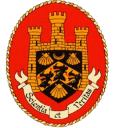
E-Safety
As a school we are dedicated to providing a safe environment for our pupils, so they can focus on aiming high, aspiring and being successful. We value the Internet as a fantastic tool to enhance learning; our aim is to make sure pupils get the best use of it by educating them in using it safely and responsibly.
The Purbeck School recognises that clear E-Safety guidance will help to ensure appropriate, effective and safer use of electronic communications for use in school, recreational and personal use for all within our community.
While the majority of E-Safety related incidents take place outside of school, as a school we take appropriate action. This involves educating our students in being responsible users of this technology. Together with you and your child we can ensure that the internet and mobile technology are being used safely and responsibly.
Top Ten E-Safety Tips
- Always think of your personal safety first when using ICT or your mobile phone or any device. Remember it is easy for anyone to lie about who they are online, so you can never really be sure about who you are talking to.
- Do not give out any personal information about yourself online to people you do not know. This includes your full name, address, street name, postcode, or school name. Only ever give out your location as Dorset.
- Never give your contact number to anyone who you don’t know.
- It is a good idea to use a nickname rather than your real name.
- Don’t meet people that you have only spoken to online. If you do decide to meet up with anyone in real life then make sure you take a trusted adult with you and meet in a public place at a busy time.
- Never give out pictures online or over a mobile. It is easy for people to take your pictures and alter them, send them on, or even pretend to be you with them.
- Always use private settings whenever you are setting up a social networking page or an Instant Messenger account. This is so people who you don’t want to see your profile can’t.
- Anything you post or upload to the internet is there forever so be very careful what you put online. Sometimes potential employers and universities look at your digital footprint.
- Never go onto webcam with people you don’t know in real life. Webcam images can be recorded and copied and also shared with other people.
- If you receive any messages or pictures that worry or upset you talk to an adult you trust. You may also report it online, via the thinkuknow website http://www.thinkuknow.co.uk
Useful information websites for advice and guidance:
- Child Line Report Remove an image
- Think Before You Share
- Internet Matters - supporting children's online safety
- UK Safer Internet Centre - stay safe online
- NSPCC - online safety
- Think U Know - child exploitation and online protection
- Childline - Cyberbullying Advice
- Childnet - resources for all
- Virgin - Children's Online Safety Test
- Smartphone Free childhood
Parents and carers can also keep updated with all the latest developments from the Thinkuknow programme by following @ThinkuknowUK on Twitter, liking ClickCEOP on Facebook.
The NCA’s CEOP Command is here to help children and young people. We are here to help if you are a young person and you or your friend (up to age 18) has been forced or tricked into taking part in sexual activity with anyone online, or in the real world. We also have advice and links to support for other online problems young people might face, such as cyberbullying and hacking. Visit our Safety Centre for advice and to report directly to CEOP, by clicking on the Click CEOP button.














